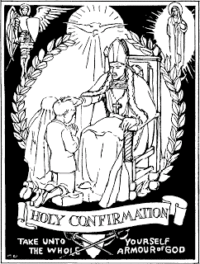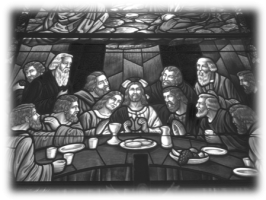Of Dust and Ashes, Ash Wednesday 2023 Reflections
“Create and make in us new and contrite hearts, that we, worthily lamenting our sins and acknowledging our wretchedness, may obtain perfect remission and forgiveness” In the Name of the Father, and of the Son, and of the Holy Ghost. Amen
On Ash Wednesday in 1623, Lancelot Andrewes reminded his listeners (by a sermon on Matthew 3:7-10) that the tradition of ceremonially giving ashes on this day is not done to primarily remind us of death to come (i.e. our mortality) but of wrath to come (i.e. the fire of final judgment). Ashes are given, he says, “to put men in mind of this fire. For they are not given to put men in mind of their mortality; dust had been more proper to have done that. Our mortality is grounded upon ‘Dust thou art and unto dust.’ But ashes, they come not without fire; where they are, fire must have been first.”
You see, more times than not, when fire is spoken of in the Scriptures, it is in reference to God – the Consuming Fire (Heb.12:29; Deut.4:24; 9:3; Isa.33:14) – who uses His Refiner’s fire (Mal.3:2) and baptizes with fire (Lk.3:16; Matt.3:11 Act.2:1-15) to make His minister a flaming fire (Ps.104:4). After all, how else could His people to come to dwell with His consuming fire (Isa.33:14-15)?
As we set out on our Lenten journey, we use these ashes to demonstrate unto God that we are ready for His refining fire to purge us of all that is not of Him and according to His will, because we know that if we don’t do it now the day of judgment will. As St. Paul tells us in 1Cor.3:13-15, “On that day, every man’s work will become manifest, because it will be revealed by fire, and the fire will test what sort of work each man has done. If the work that he has built upon the foundation of Jesus Christ survives, he will receive a reward. If his work is burned up, he will suffer loss, though he himself will be saved, but only as through fire.”
We do not have to wait for that day, and in fact we shouldn’t. Instead, we ought to pray to God with ashes upon our head acknowledging that most of what we presently value will be nothing more than ashes in the end, and to ask Him to grant us His grace throughout this Holy Lent to be able to fast from those things and to discover a faith that is fire-proof and eternal. For “the hour cometh, and now is, when the true worshippers shall worship the Father in spirit and in truth: for the Father seeketh such to worship Him.” Amen.
God in the burning bush – Exod.3:2-3; Act.7:30
God in the pillar of fire – Exod.13:21; 14:24; 24:17; Num.14:14; Deut.1:33; Ps.78:14; 105:39; Isa.4:5
God in the Tabernacle fire – Num.9:15-16; 11:1; Exod.40:38
God in Temple fire – 2Chr. 7:1; Amos9:1
God cutting a Covenant with Abraham – Gen.15:17
Flaming throne of the Ancient of Days – Dan.7:9; Isa.66:15
God on Mt. Sinai – Deut.4:12,15, 33, 36; 5:4, 22, 24, 26; 9:10; 10:4; Exod.19:18; 24:17
Fire comes when God comes – Ps.50:3; 18:12; 2Sam.22:13; Isa.66:15
The fire of the Lord – 1Kng.18:38; 2Kng.1:9-12
The fire of the Lord’s breath – Isa.30:33; Ps.18:8
He baptizes with the Holy Spirit and fire – Lk.3:16; Matt.3:11 Act.2:1-15
Creation purged by fire – 2Pet.3:10
Righteous Judged by fire – 1Cor.3:11-15; 1Pet.1:7; Zech.13:9; Mal.3:2-3; Isa.4:4 (cleansed by a spirit of burning); Lam.1:12-13.
Wicked Punished by fire – Jude1:7; Matt.25:41; Mrk.9:43; Rev.14:10; 20:10-15; 21:8
Sodom and Gomorrah turned to ashes – 2Pet. 2:6 Often associated with sacrifices, mourning, and fasting. Grief, humiliation, and repentance were expressed by placing ashes on the head or by sitting in ashes. At times ashes that remained from a sacrifice were kept and used for ritual purification (Numb.19:9,17; Heb.9:13). They also signify the results of divine destruction. The uses of ashes to express grief and repentance continued into the NT period.
Dust and Ashes – Gen.18:27; Job 42:6 “Dust” may indicate lowliness (1Sam.2:8; Ps.72:9; Eccl.3:20), and ashes signify mourning and repentance (2Sam.13:19; Esth.4:1; Job 2:8)
Sackcloth and Ashes (signifying humility, Isa.58:5); (for mourning, Jonah 3:6)
Sackcloth and Dust (signifying humility, Neh.9:1); (for mourning, Job 16:15; Lam.2:10)





